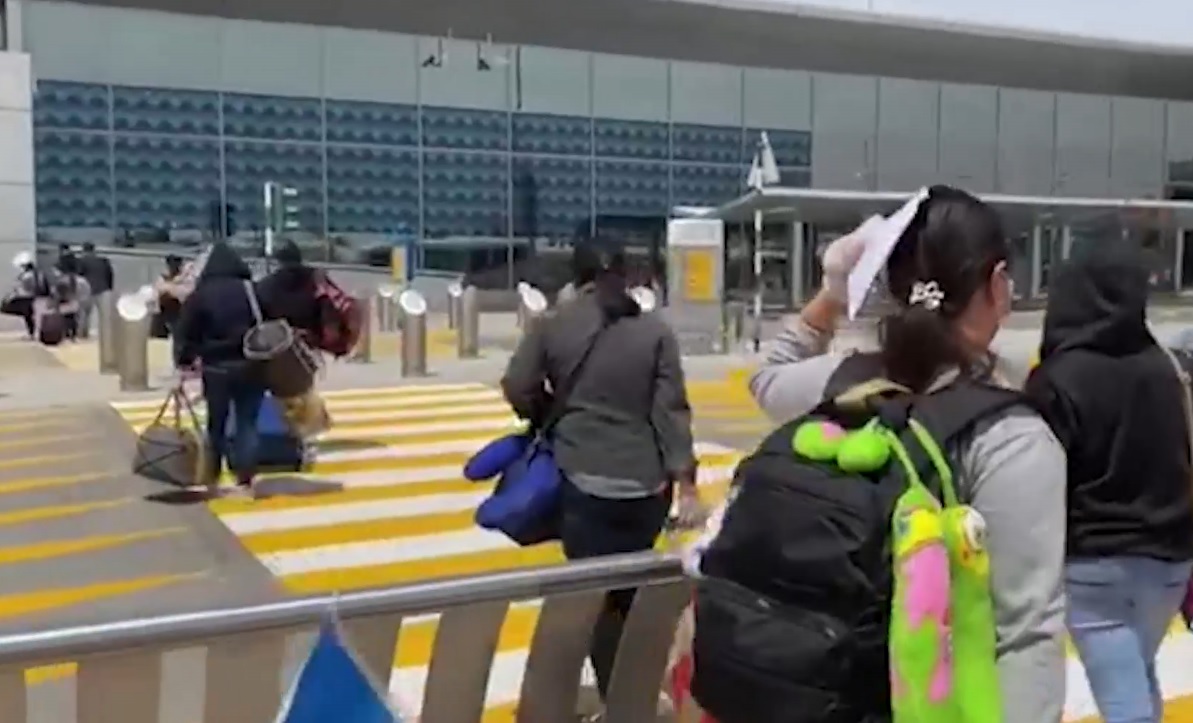Overseas Filipinos in the UAE shared that the temporary two-week travel ban is a necessary sacrifice that they have to bear with at the moment, stressing that they don’t want the gravity of the coronavirus incidents in other countries to ever happen to their loved ones back home.
Messages sent to the Facebook page of The Filipino Times reveal that some Filipinos initially planned to visit the Philippines this May for a vacation, but had to reschedule following after they learned that the COVID-19 variant from India, otherwise known as the B.1.617 originated from two overseas Filipino workers who came from UAE and Oman.
Among them is ‘Anne’, a Filipino nurse who had planned to visit her family this May 20. She said that when she learned that the variant had been spotted in the country, she immediately told her kids that they would have to wait a little longer before they meet in person once again.
“Miss na miss ko na ang mga anak ko, pero hindi ko matatanggap sa sarili ko kung ako yung magiging rason kung bakit sila nagka COVID-19. Ang mahirap kasi sa ngayon, hindi pa napapag-aralan ng mga otoridad yung sinasabing ‘transmission risk’. Kung ako na nakakuha na ng bakuna ay protektado, paano naman kung maipasa ko sa mga anak ko ang virus – lalo na itong Indian variant na ang dami nang pinatay sa bansang pinagmulan ng virus di ba?” said Anne.
READ ON: PH bans travel from UAE, Oman until May 31
The Sharjah-based nurse was referring to the “transmission risk” or the possibility for individuals, whether vaccinated or not, to transmit the virus to other people. The World Health Organization (WHO) stated that there is “no clear evidence” that the vaccine prevents vaccindate individuals from passing on traces of the COVID-19 virus to others. This is why even the concept of “vaccine passports” or “certifications” have yet to be approved by the global health community.
“At the present time, it is WHO’s position that national authorities and travel operators should not introduce requirements of proof of COVID-19 vaccination for international travel as a condition for departure or entry. This is because the efficacy of vaccines in preventing transmission is not yet clear, and due to limited global vaccine supply. Recommendations will evolve as evidence about existing and new COVID-19 vaccines is compiled,” read the statement from WHO.
“Rex”, a Dubai-based OFW said that the limited supply of vaccines in the Philippines is also an issue that increases the risk of transmitting COVID-19 to his loved ones. He initially planned to return by May 29 – but since his flight would most likely be cancelled, he opted to just rebook his flight at a later date.
READ ON: OFWs lament Philippine gov’t ban on travellers from UAE, Oman
“Ngayong nasa Pilipinas na itong mga variants na mas nakakahawa, alam naman nating hirap ang ating bansa na makakuha ng supply ng bakuna para mabigyan proteksyon yung mahigit 100 milyon nating mga kababayan. Wala pang herd immunity sa Pilipinas. Dalawang linggo lang naman ang travel ban. Ako sa totoo lang, mahigit limang taon na ko dito sa Dubai na hindi umuuwi, pero sakripisyo para sa bayan na ito bilang responsableng OFW na makiisa sa aking bansa para maiwasan yung pagkalat ng COVID-19,” said Rex.
Another netizen noted that some of these OFWs only go back home for vacations, which today is a luxury considering the present situations.
“Kung hindi lang naman emergency ang uwi, ipagpaliban muna. Kaunting kooperasyon, kahit nabakunahan ang karamihan sa ibang bansa gaya dito sa UAE, ang Pilipinas hindi pa umaabot sa herd immunity. Tsaka dagdag gastos sa gobyerno ulit dahil libre ng gobyerno ang quarantine ng OFW. Pinas lang ang gumagawa nyan na nililibre ang manggagawa na bumabakasyon. Be considerate to your country.. Kung hindi emergency, baka maaari ipagpaliban muna ang pag uwi ✌️,” said the netizen.




